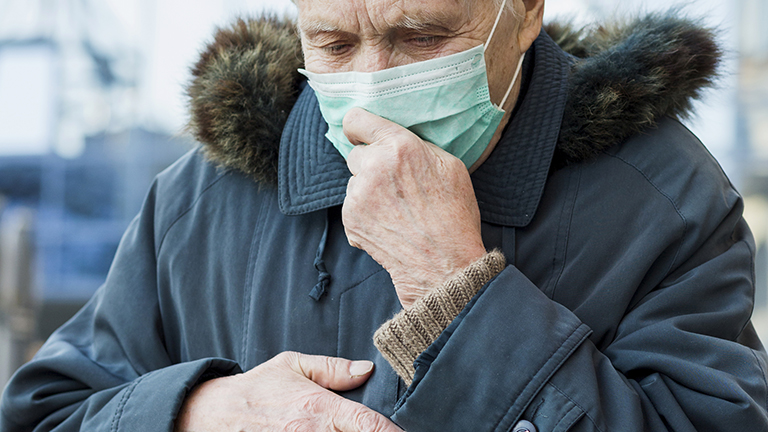Pneumonia is a serious lung infection affecting millions worldwide. But many wonder: Is pneumonia contagious? The answer depends on its cause—bacterial, viral, or fungal. Understanding how pneumonia spreads, its symptoms, prevention methods, and treatment options is essential for protecting yourself and others. Let’s explore this in detail.
Table of Contents
Introduction – Is Pneumonia Contagious?
Pneumonia is one of the most common lung infections worldwide, affecting millions of people each year in the US, UK, Canada, and globally. But the most common question people ask is: “Is pneumonia contagious?”
The short answer is: Yes, some types of pneumonia are contagious, while others are not. Whether or not you can catch pneumonia depends on its cause—viral, bacterial, or fungal. This article provides an in-depth explanation of how pneumonia spreads, who is most at risk, symptoms to look out for, and evidence-based prevention and treatment options.
What is Pneumonia?
Pneumonia is an infection that causes inflammation in the air sacs of one or both lungs. These air sacs may fill with fluid or pus, leading to cough, fever, chills, and difficulty breathing. Pneumonia can range from mild (like walking pneumonia) to life-threatening, particularly in infants, older adults, and people with weakened immune systems.
Types of Pneumonia
- Bacterial Pneumonia – Caused by bacteria like Streptococcus pneumoniae, often contagious.
- Viral Pneumonia – Caused by viruses such as influenza or RSV, highly contagious.
- Fungal Pneumonia – Caused by inhaling fungal spores, not usually contagious person-to-person.
- Aspiration Pneumonia – Caused by inhaling food, drink, or saliva into the lungs, not contagious.
How Pneumonia Affects the Lungs
In pneumonia, the lung’s alveoli (tiny air sacs responsible for oxygen exchange) become inflamed and filled with fluid. This reduces oxygen intake and makes breathing difficult. The severity depends on the person’s age, health status, and the type of pneumonia.
How Pneumonia Spreads
The contagiousness of pneumonia depends on its underlying cause. Understanding the routes of transmission helps reduce spread and protect vulnerable populations.
Airborne Transmission
Viral and bacterial pneumonia can spread when an infected person coughs, sneezes, or even talks, releasing respiratory droplets into the air. Others can inhale these droplets and become infected.
Direct Contact & Respiratory Droplets
Touching surfaces contaminated with pneumonia-causing bacteria or viruses and then touching your nose, mouth, or eyes can lead to infection. Close contact—such as kissing or sharing utensils—also increases risk.
Is Walking Pneumonia More Contagious?
Walking pneumonia, usually caused by Mycoplasma pneumoniae, is considered highly contagious, especially in schools, workplaces, and crowded environments. While symptoms are mild, people often continue daily activities, unknowingly spreading it.
Symptoms of Pneumonia to Watch For
Pneumonia symptoms vary by age, health, and the type of infection. Recognising early signs can help with timely treatment.
Early Signs in Adults
- Persistent cough (with mucus or pus)
- High fever, chills, and sweating
- Shortness of breath or rapid breathing
- Chest pain while breathing or coughing
- Fatigue and weakness
Symptoms in Children and Elderly
- Rapid breathing or difficulty breathing
- Fever, irritability, or lethargy
- Poor feeding in infants
- Confusion or low body temperature in older adults
Who is Most at Risk of Pneumonia?
While anyone can get pneumonia, certain groups face higher risks:
- Infants and children under 5
- Adults over 65
- People with chronic conditions (asthma, COPD, diabetes, heart disease)
- Smokers and heavy drinkers
- Immunocompromised individuals (HIV/AIDS, cancer patients)
How Long is Pneumonia Contagious?
The period of contagiousness depends on the type:
- Bacterial pneumonia: Contagious until 24–48 hours after antibiotics begin.
- Viral pneumonia: Contagious as long as symptoms persist (similar to flu).
- Walking pneumonia: Can remain contagious for several weeks.
Preventing Pneumonia Transmission
Prevention strategies reduce both risk and severity of pneumonia:
- Get vaccinated (flu shot, pneumococcal vaccines).
- Wash hands frequently.
- Avoid smoking and secondhand smoke.
- Wear masks in crowded settings during flu season.
- Maintain strong immunity through healthy diet, exercise, and sleep.
Treatment Options for Pneumonia
Treatment depends on the type and severity of pneumonia:
- Bacterial pneumonia: Antibiotics (usually effective within days).
- Viral pneumonia: Antivirals for influenza-related cases; otherwise supportive care.
- Fungal pneumonia: Antifungal medications.
Home remedies include rest, hydration, and warm compresses for chest discomfort.
Complications of Untreated Pneumonia
Severe or untreated pneumonia can cause:
- Respiratory failure
- Lung abscesses
- Sepsis (blood infection)
- Hospitalisation and long-term breathing issues
FAQs About Pneumonia Contagion
Can you catch pneumonia from someone? Yes, viral and bacterial pneumonia are contagious.
How long should I stay home with pneumonia? Until fever resolves and antibiotics/antivirals have been taken for at least 24–48 hours.
Can pneumonia return after treatment? Yes, recurrence can happen in high-risk patients.
Conclusion – Understanding Pneumonia Contagiousness
Pneumonia remains a major global health concern. While not all types are contagious, many spread through airborne droplets and close contact. Recognising symptoms early, seeking prompt medical care, and practicing preventive measures like vaccination and good hygiene significantly lower risks. Understanding whether pneumonia is contagious is crucial for protecting yourself and others.


